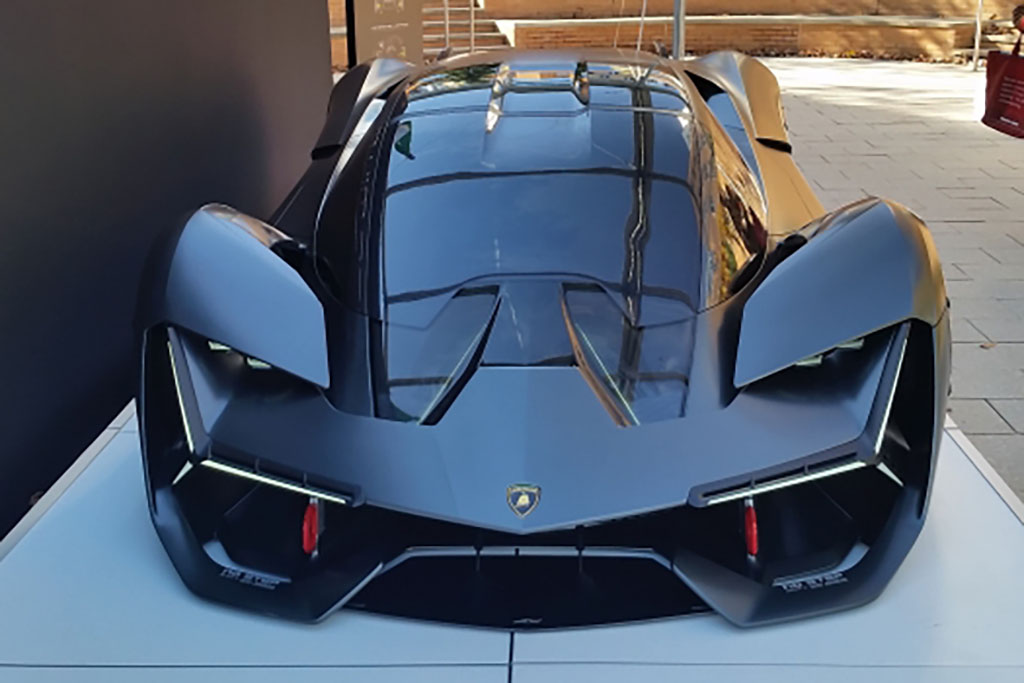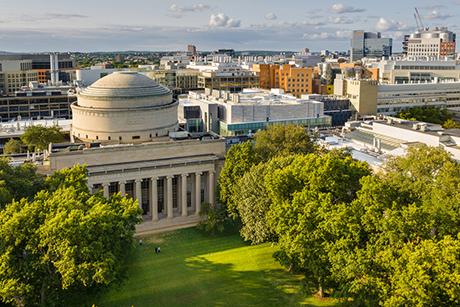MIT researchers collaborate with Lamborghini to develop an electric car of the future
Members of the MIT community who passed through the Stata Center courtyard last week likely found it hard not to notice the Lamborghini parked there as if it were visiting from the future. The car’s name — Terzo Millenio — says it all. Terzo Millenio is an automobile prototype for the third millennium, and its unique ability to deliver high peak power and regenerate kinetic energy, all while ensuring the ability to release and harvest electric power, can be attributed to the work of MIT associate professor of chemistry Mircea Dinca.
The Terzo Millenio aims to be self-healing and electric — concepts that today seem about as far-fetched as the hovercrafts in "Back to the Future II"’s imagining of 2015. However, in reality, this technology is as attainable as it is visionary.
"The new Lamborghini collaboration allows us to be ambitious and think outside the box in designing new materials that answer energy storage challenges for the demands of an electric sport vehicle," says Dinca. "We look forward to teaming up with their engineers and work on this exciting project.”
Lamborghini is relying on MIT to make its cars of the future operate on electricity, while maintaining the aesthetic standards and high-powered mechanical elements that make operating these luxurious sports cars so thrilling for those who drive them. In October 2016, Automobili Lamborghini began a three-year partnership with MIT that will grant Lamborghini exclusive rights to emerging research related to battery storage and materials science.
Lamborghini’s mission for this partnership is to “rewrite the rules on super sports cars” by addressing energy storage systems, innovative materials, propulsion systems, visionary design, and “emotion.” By incorporating research from Dinca and John Hart, associate professor of mechanical engineering, who will investigate new carbon fiber and composite materials that could enable the complete body of the car to somehow be used as a battery system, the hope is that this ambitious, visually stunning prototype will become a reality.
“We are thrilled to combine our expertise in advanced materials and manufacturing with the vision and support of Automobili Lamborghini, and to realize new concepts that will shape the future of transportation,” says Hart.
The concept of revolutionizing the Lamborghini of the future is an exciting one; not only will this collaboration undoubtedly lead to new technologies in the fields of the energy accumulation systems, materials science, and manufacturing, but MIT students will have the opportunity to perform research at Automobili Lamborghini. The sustained contact forged between MIT and Lamborghini carries the potential for groundbreaking revelations.



